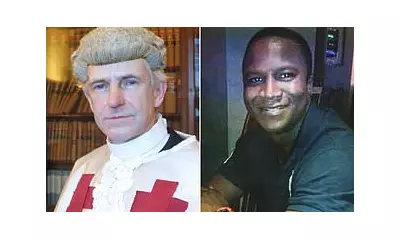
In a stunning confession that reads like one of his own thrillers, legendary author Frederick Forsyth has revealed he seriously considered turning to criminal contacts to exact revenge on a man who stole his fortune.
The master storyteller behind classics like 'The Day of the Jackal' and 'The Odessa File' found himself living through a real-life crime drama when a trusted associate embezzled a significant portion of his wealth.
A Moment of Dark Temptation
Forsyth, now 86, admits that in his fury and desperation, he contemplated using the dubious underworld connections he'd made while working as a journalist to arrange punishment for the thief.
'I knew some pretty rough boys,' the author confessed, referring to the criminal elements he'd encountered during his years as a Reuters correspondent covering conflicts and intelligence operations.
The Perfect Crime - Almost
The revelation comes as part of promotional discussions for his upcoming autobiography, where Forsyth pulls back the curtain on moments that mirror the high-stakes tension of his fiction.
What stopped him from crossing that line? The acclaimed writer suggests it was a moment of clarity about the irreversible consequences such actions would bring.
From Fiction to Harsh Reality
Forsyth's life has often mirrored his work. Before becoming one of Britain's most successful authors, he served as an RAF pilot and foreign correspondent, operating in dangerous environments from East Germany to Africa during the Biafra conflict.
These experiences provided authentic background for his gripping novels but also exposed him to the very criminal underworld he nearly turned to in his moment of crisis.
A Cautionary Tale
The incident serves as a powerful reminder that even the most successful individuals can fall victim to financial betrayal. Forsyth's story highlights the intense emotional turmoil that follows such violations of trust.
Rather than pursuing vigilante justice, the author ultimately chose the legal route, though the details of how he recovered his stolen fortune remain part of the compelling narrative awaiting readers.
This extraordinary admission adds another layer to the complex legacy of one of Britain's most celebrated thriller writers, proving that sometimes truth really can be stranger than fiction.





